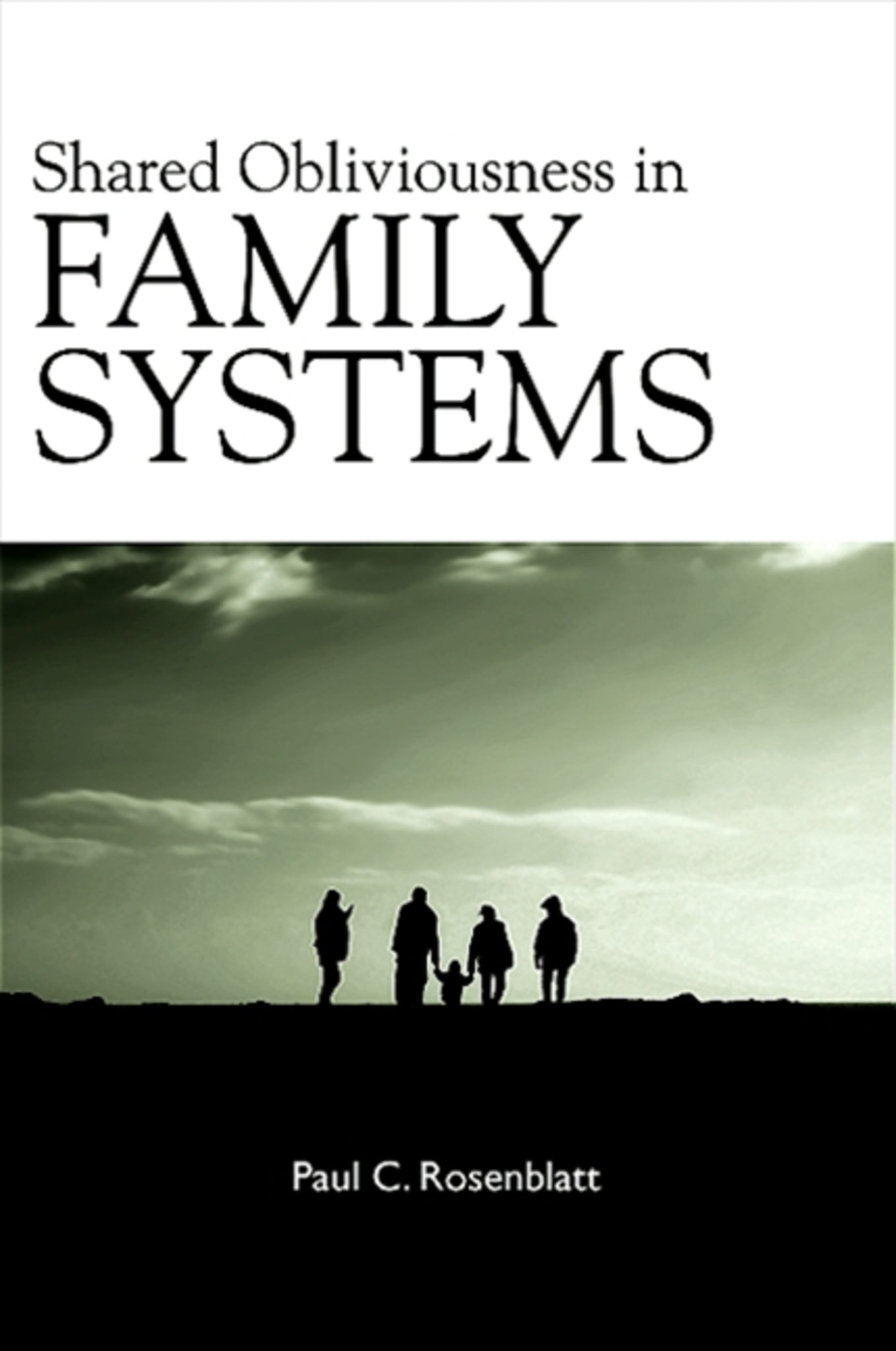We're sorry. An error has occurred
Please cancel or retry.
Shared Obliviousness in Family Systems

Some error occured while loading the Quick View. Please close the Quick View and try reloading the page.
Couldn't load pickup availability
- Format:
-
09 July 2009

Introduces the concept of obliviousness to the consideration of family systems—what do families choose to ignore and why and how they do so.
The modern family is inundated with information and no family can attend to it all; families must set priorities and remain oblivious to much. Obliviousness is the intriguing subject of Paul C. Rosenblatt's speculative and theoretical work. The hidden undersides of what families are aware of, know, and talk about are vast and complex, maintained at times with great effort, linked to important matters in the family and in society, necessary for family functioning but also, at times, a source of great difficulty. How are areas of obliviousness built up and maintained? How does a family overcome obliviousness that creates difficulty? Drawing on work in family systems, family therapy, whiteness and privilege, and social construction, among other research, this book is enlightening for all who work with, study, and care about the family.


"…Rosenblatt breaks new ground by introducing shared family obliviousness theory and providing examples of how the theory works and helps families maintain their lives in view of the pressures of daily information that inundates them from a multitude of sources—adding a new dimension for working with families." — Journal of Contemporary Social Services
"…an intriguing addition to the literature on family-systems theory, a work that builds on a rich history of family-systems research." — CHOICE
"This work pertains to family information management, focusing on what is not said rather than what is. In a highly readable fashion, Rosenblatt makes us more aware of the many ways in which we avoid talking about certain topics in our families and elsewhere. He takes a systems approach to the family and clarifies mechanisms that render some topics unspeakable." — Dudley D. Cahn, editor of Family Violence: Communication Processes
Preface
Acknowledgments
1. Shared Obliviousness as a Family Systems Phenomenon
2. Family System Mechanisms for Maintaining Shared Obliviousness
3. Family Obliviousness to Context
4. Obliviousness to Matters within the Family
5. Shared Obliviousness and Family Decisions
6. Family System Responses to Threats to Obliviousness
7. Obliviousness and Family Therapy
8. Researching Shared Family Obliviousness
9. Shared Obliviousness Th at Is Not Quite Shared or Oblivious
10. The Future of Shared Family Obliviousness
References
Index



